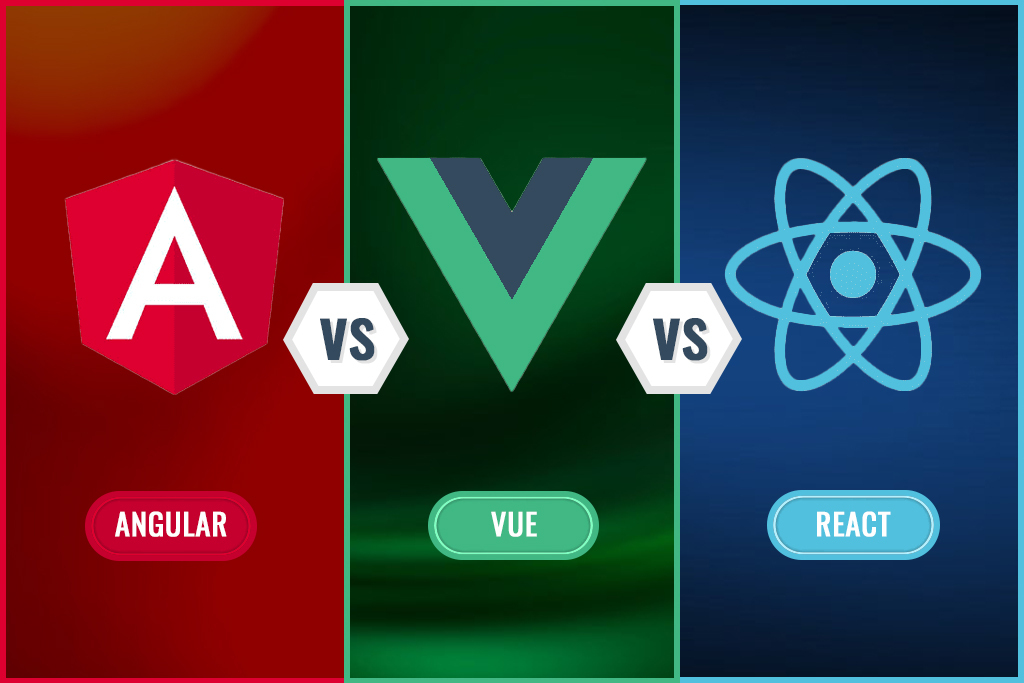Introduction
Choosing the right JavaScript framework can define your growth and job opportunities as a developer in 2025. With React, Angular, and Vue continuing to dominate front-end development, knowing which one to master is crucial for your projects and career.
This guide breaks down React vs Angular vs Vue, analyzing ease of learning, job opportunities, performance, community support, and future trends so you can confidently choose the framework to master in 2025.
What Makes a Framework Worth Learning in 2025?
- Job Demand: What are employers seeking?
- Ease of Learning: How fast can you become productive?
- Ecosystem and Community: Does it have active support and resources?
- Performance and Scalability: Is it suitable for projects of any size?
- Future Trends: Is it evolving with the industry?
React in 2025
What It Is: A library for building user interfaces, maintained by Meta (Facebook).
- Ease of Learning: Moderate. JSX syntax may take time to adapt.
- Job Opportunities: Extremely high, with startups and large companies heavily using React.
- Community Support: Largest among frameworks, vast resources, reusable libraries.
- Performance: Excellent, with Virtual DOM and concurrent rendering improvements.
- Future Proof: Stable, with continued updates and ecosystem growth (React Server Components, React 19 advancements).
Best For: Developers seeking flexibility, rich ecosystems, and high-paying job markets.
Angular in 2025
What It Is: A full-fledged front-end framework maintained by Google, using TypeScript.
- Ease of Learning: Steep learning curve due to TypeScript, dependency injection, and RxJS.
- Job Opportunities: Strong demand in enterprise and government projects.
- Community Support: Robust, with strong official documentation.
- Performance: Excellent, with Ahead-of-Time compilation and tree-shaking for optimized builds.
- Future Proof: Actively maintained with enhancements in signals, hydration, and SSR improvements.
Best For: Developers aiming for enterprise-level, scalable applications with a structured approach.
Vue in 2025
What It Is: A progressive framework known for simplicity and flexibility, community-driven.
- Ease of Learning: Easiest to learn among the three.
- Job Opportunities: Growing, especially in startups and Asian markets.
- Community Support: Active and helpful, though smaller than React.
- Performance: Lightweight, with Composition API providing fine-grained reactivity.
- Future Proof: Vue 3 and upcoming Vue 4 improvements are keeping it modern.
Best For: Beginners, freelancers, and developers wanting rapid development without complexity.
Direct Comparison Table
| Criteria | React | Angular | Vue |
|---|---|---|---|
| Ease of Learning | Moderate | Steep | Easy |
| Job Opportunities | Very High | High (Enterprise) | Moderate (Growing) |
| Community | Largest | Large | Growing |
| Performance | Excellent | Excellent | Excellent |
| Use Cases | Flexible, SPAs, Mobile | Enterprise Apps | Rapid Prototyping, SPAs |
FAQs
Q: Which framework has the most job opportunities in 2025?
A: React currently has the highest demand across companies globally.
Q: Is Angular still relevant in 2025?
A: Yes, especially for enterprise-scale applications where structure and scalability matter.
Q: Is Vue good for beginners?
A: Absolutely. Vue’s gentle learning curve makes it ideal for those starting with front-end frameworks.
Q: Can I learn multiple frameworks?
A: Yes, but focusing on one initially helps you gain deep expertise before branching out.
Final Thoughts
If you want maximum job opportunities, React remains the best choice in 2025. If you prefer structured frameworks and plan to work in enterprise environments, Angular is your go-to. If you want to build projects quickly with a gentle learning curve, Vue will serve you best.
Evaluate your career goals, the type of projects you want to build, and your learning preferences before choosing which to master in 2025.

